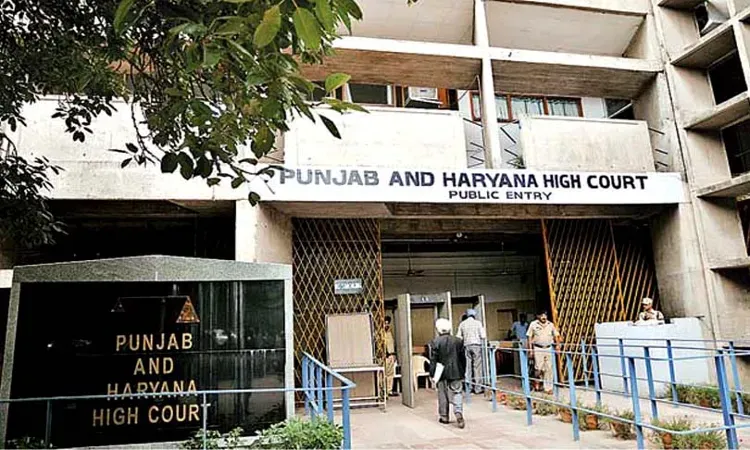Introduction
The Punjab and Haryana High Court has issued a significant ruling concerning the filing of pleas for judicial separation following the dismissal of divorce petitions. This landmark decision underscores the importance of judicial efficiency and the prevention of abuse of the legal process. The case in question involved a plea for judicial separation under Section 10 of the Hindu Marriage Act (HMA) filed after the dismissal of a divorce petition under Section 13 of the same Act.
Background of the Case
The case arose when the appellant, whose initial petition for divorce was dismissed by the Family Court, subsequently filed for judicial separation. The Family Court also rejected this petition, prompting the appellant to appeal to the Punjab and Haryana High Court. The central issue was whether a petition for judicial separation could be filed after a divorce petition on similar grounds had already been dismissed and had become final and binding.
High Court’s Analysis
The bench, comprising Justice Sureshwar Thakur and Justice Sudeepti Sharma, provided a thorough analysis of the legal principles involved. They emphasized that the dismissal of the divorce petition, which had become final and unchallenged, carried a binding and conclusive effect. The court highlighted that filing a plea for judicial separation on similar grounds amounted to a gross abuse of the process of law and was an attempt to circumvent the binding nature of the previous dismissal.
Legal Reasoning
The court's reasoning was anchored in the principle of estoppel and the doctrine of constructive res judicata. Estoppel prevents a party from re-litigating issues that have already been conclusively decided. The doctrine of constructive res judicata ensures that once a matter is adjudicated, it cannot be reopened in subsequent proceedings, thereby promoting judicial efficiency and finality in litigation.
The judges noted that allowing such successive petitions would lead to an unending cycle of litigation, undermining the holistic spirit of statutory norms intended to resolve disputes conclusively. They asserted that the statutory norms should be revered and not rendered meaningless by allowing repeated litigation on the same grounds.
Key Observations
Justice Thakur, speaking for the bench, made several key observations. He noted that the dismissal of the divorce petition had acquired a binding and conclusive effect, which the appellant could not circumvent by filing for judicial separation. He stressed that the legal system must prevent the abuse of process and uphold the finality of judicial decisions. The bench also pointed out that the grounds for judicial separation were not substantially different from those for divorce, further justifying the rejection of the plea.
Impact on Legal Precedent
This ruling by the Punjab and Haryana High Court sets a significant precedent in matrimonial law. It reinforces the principles of estoppel and constructive res judicata, emphasizing the need for finality in legal proceedings. The decision discourages litigants from using legal loopholes to prolong disputes and ensures that judicial resources are used efficiently.
Conclusion
In conclusion, the Punjab and Haryana High Court’s decision to dismiss the plea for judicial separation after the dismissal of a divorce petition is a reaffirmation of the legal principles that safeguard the integrity of the judicial process. The ruling serves as a reminder that the legal system is designed to prevent the abuse of process and ensure that once a matter is decided, it should not be reopened on similar grounds. This decision not only upholds the sanctity of judicial decisions but also promotes judicial efficiency and the final resolution of disputes.










0 Comments
Thank you for your response. It will help us to improve in the future.